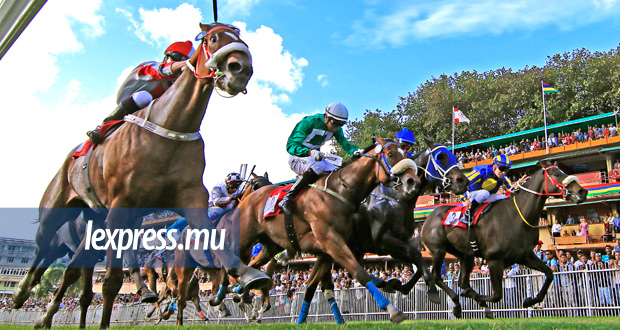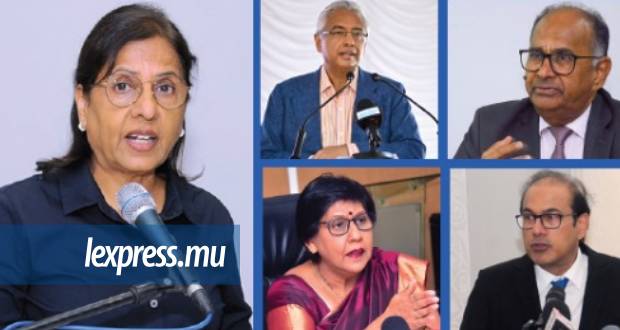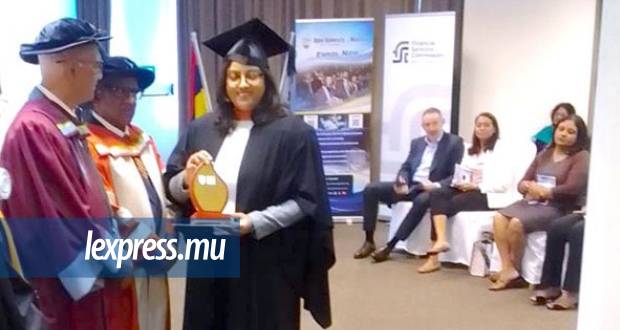Publicité
GRA v MTC : An Endless Ding Dong Battle to the Winning Post
Par
Partager cet article
GRA v MTC : An Endless Ding Dong Battle to the Winning Post

There cannot be a winner in this ding dong battle between the GRA and the MTC; there is certainly one loser: Horse-Racing. In the advent of the new Directions No. 1 of 2019 issued last week by the GRA to the MTC, the article below analyses the fundamental question: Is the MTC licensed to organise horse racing or is the MTC licensed to be organised by the GRA?
The Gambling Regulatory Authority (GRA) issued Directions No. 1 of 2019 to the Mauritius Turf Club (MTC) on the 19th March 2019. These Directions are made under Section 100 of the GRA Act and I analyse their far-reaching implications on the horse racing organiser and horse-racing generally.
The table below compares the responsibility of the MTC under Section 31 and the powers of the GRA under Section 100 of the Gambling Regulatory Authority Act
Section 31 of the GRA- Responsibilities of the MTC
31. Responsibility of horse-racing organiser
(1) A horse-racing organiser shall, in relation to the racecourse
it manages, be responsible for –
(a) organising horse-racing;
(b) enforcing the Rules of Racing;
(c) promoting integrity and fair play in horse-racing;
(d) properly managing the racecourse infrastructure and amenities
and training facilities; and
(e) appointing an appeal committee to review decisions taken by
the racing stewards.
(2) For the purposes of subsection (1)(a), the responsibilities
of a horse-racing organiser shall include –
(a) the conduct of race meetings;
(b) the registration of stables and stable managers;
(c) the registration of owners of race horses;
(d) the registration of trainers, jockeys, riders and other horse-racing
professionals;
(e) the employment of, and the issue of directions to, racecourse
officials;
(f) the veterinary arrangements, anti-doping measures and laboratory
services;
(g) the registration, safety and security of race horses;
(h) the exercise of disciplinary powers in respect of the persons referred
to in this subsection; and
(i) the promotion of leisure activities for the race-going public.
Section 100 of the GRA Act- Powers of the GRA to issue Directions (relevant parts)
(1) The Board may give to a licensee such directions, not
inconsistent with this Act, as the Board thinks fit in relation
to the conduct of his business.
…
(3) Where the Board gives a direction under subsection
(1) to a horse-racing organiser, the direction may include
provisions for the horse-racing organiser to:
(a) ensure public confidence in the integrity of the racing industry in
Mauritius;
(b) ensure its actions are accountable and its decision-making processes
are transparent;
(c) review its existing Rules of Racing; or
(d) disseminate information regarding racing fixtures in a timely
manner.
WHO DOES WHAT?
The responsibilities of the MTC are clearly defined under section 31 of the GRA Act. These responsibilities make it possible for the MTC as a licensee to organise races in a manner which is required not only under the provisions of the law more importantly as is necessary under the Agreement with the International Federation of Horse Racing Authorities (IFHA).
Notwithstanding those responsibilities of the MTC, the GRA may issue Directions to the MTC under section 100 of the Act. Such Directions must not be inconsistent with the Act (emphasis is mine). Therefore the GRA may give Directions to the MTC as a licensee but it cannot interfere with the responsibilities of the MTC as set out in section 31 of the Act.
SECTION 100- A POWERFUL TOOL
It is undisputable that under Section 100 the GRA has the most powerful tool to make whatever general policies it wishes for its licensees, which includes the MTC. This section specifically provides for Directions to the horse-racing organiser with a view to ensure that the objectives laid down in section 100 3 (a) to (d) are achieved. The said section 100 cannot, by any stretch of imagination, be read and/or interpreted to mean that the GRA can direct the MTC to do what the GRA wants when it is, for example, organising its doping control mechanism. An analysis of paragraphs 4 and 12 illustrates exactly this:
Directions No. 1 of 2019- Paragraphs 4 and 12:
Under Paragraph 4
(a) The Mauritius Turf Club shall, not later than one hour from
the issue of a racecard, cause samples of blood or urine to be
collected from horses entered on that racecard.
(b) Samples collected under paragraph (a) shall be tested by
an analyst or laboratory approved by the Club.
Under paragraph 12
(a) The Mauritius Turf Club shall ensure that a horse is subject
to a 7 to 10 clear day stand down period after a horse is
treated by way of intra-articular infiltrations.
(b) The Mauritius Turf Club shall, whenever required by the
Gambling Regulatory Authority, furnish all relevant particulars
in respect of a horse treated by way of intra-articular infiltrations.
Are the GRA officers going to wait at the stables, stopwatch in hand, to enforce this Direction? What is the purpose of such a Direction when the MTC already has a mechanism in the Rules of Racing and the Directions for Security and which the GRA itself has reviewed. If the GRA was not satisfied, it ought to have requested the MTC to review the rules and include whatever additional safeguard to ensure that it complies with the requirements of integrity and control for the game. More importantly, unless the law provides for it, in my humble view, the GRA cannot impose a Direction, which creates a financial burden on its licensee.
Whilst as a matter of general policy the GRA can issue a Direction for Doping Control to the MTC, it cannot itself impose the timing and the mechanism on the MTC. In so doing, it is necessarily interfering with the responsibilities of the MTC under section 31 (1) (a) to (d) and 31 (2), which I reproduce below:
31. Responsibility of horse-racing organiser
(1) A horse-racing organiser shall, in relation to the racecourse it
manages, be responsible for –
(a) organising horse-racing;
(b) enforcing the Rules of Racing;
(c) promoting integrity and fair play in horse-racing;
(d) properly managing the racecourse infrastructure and amenities
and training facilities; and
(2) For the purposes of subsection (1)(a), the responsibilities of a
horse-racing organiser shall include –
(f) the veterinary arrangements, anti-doping measures and
laboratory services;
(g) the registration, safety and security of race horses;
SECTION 31-
CLEAR AND UNAMBIGUOUS
The clear wording of section 31 and the spirit of this section cannot give rise to any doubt about what the MTC is entitled to do by itself and without interference by the GRA. Anything done by the GRA, which interferes with this section would be what section 100 refers to as ‘inconsistent’ and therefore is prohibied.
THE CONTENTION OF THE GRA TO JUSTIFY THE DIRECTIONS
The GRA will argue that there is no inconsistency inasmuch as its Directions are in line with its objectives and its powers. Nobody is arguing differently. The GRA in fact has a duty to ensure that its licensees are observing the provisions and spirit of the law to protect the public.
The bone of contention here lies in the manner in which the GRA is imposing on the MTC ‘rules for the game’ as opposed to general policies for the MTC to create those rules in its Rules of Racing.
The manner in which the GRA has drafted its Directions to the MTC gives rise to an inevitable perception that the GRA has substituted itself for its licensee and is creating the Rules of Racing. I hear the GRA say, ‘they are not doing it’ so we are. Unfortunately the GRA ought to be better advised that when its licensee is not providing for measures to ensure compliance with the provisions of the GRA Act, the solution does not lie in doing it for them but in using its powers of discipline under the law to sanction the licensee. This is provided for under Section 99 of the GRA Act.
Therefore instead of issuing Directions, which are interfering with the organisation of horse-racing by the MTC, the GRA ought to allow the MTC to discharge its responsibilities under section 31 of the Act and if in breach, sanction the MTC with the powers the Act provides for such breaches.
AN ANALYSIS OF SOME OF THE OTHER DIRECTIONS ISSUED UNDER DIRECTIONS NO. 1 OF 2019
I do not propose to do an in-depth analysis of every new paragraphs included in the Directions No. 1 of 2019 but propose to briefly look into some issues which may arise and be disruptive in the organization of horse racing. I have therefore limited myself to 1 - 3, 6 - 9, 11 and 13. I have already analysed 4 and 12 above. I am going to start with Paragraph 9 of the Directions 1 of 2019 because of its very serious and far reaching consequences.
Under 9
Where a horse is entered for competition and is in the custody of the Mauritius Turf Club, no person other than approved officials, trainers and grooms of the Mauritius Turf Club, shall be allowed inside the horse’s box.
This is potentially one of the most controversial Directions of this 2019 season. The Direction makes an essential assumption; it assumes that a horse entered for competition, is in the custody of the MTC. However the Rules of Racing, which the GRA itself approves, provides that horses are at all times, under the responsibility of a licensed trainer.
If the MTC has custody of the horses entered for competition as the Directions indicate, then no licensed trainer could be found guilty under the Rules if his horse(s), entered for competition, is found with an illicit/prohibited substance.
The GRA has put the MTC in a very precarious situation inasmuch as any prosecution of a licensed trainer for a breach of the rules of racing for a horse found with an illicit/ prohibited substance will see the licensed trainer bring up the defence that the MTC, as directed by the GRA, has custody of horses (‘la garde de la chose’) entered for competition. That Direction has tried to provide for something that already exists under the Rules of Racing and the Directions for Security of the MTC. Why poke your nose in what is not your business I hear some say… others would argue that this is pure ignorance on the part of the GRA. Either way this must be rectified and it is for the GRA to do so either by amending the Direction or purely withdraw it.
Under 1
The Mauritius Turf Club shall not alter its Racing Guidelines/ Directions for Racing or Rules of Racing in the course of a Racing Season, except following consultations with all appropriate stakeholders and with the consent of the Gambling Regulatory Authority.
The Racing Guidelines and Directions for Racing or Rules of Racing are the rules, which govern the game. That the MTC amends from time to time its Rules and Directions for Racing is essential for the good running of the game. That the GRA has a ‘droit de regard’ on the proposed amendments and eventually gives its consents is a positive measure. It provides room for consultation before changes are brought and those, who are potentially going to be affected by the amendments, can make representations.
However there is a need for caution; what happens if one stakeholder does not agree to one or several proposed amendments by the horse racing organiser? What mechanism is there in place to decide, whether the amendments should be allowed or not? Shall it be the prerogative of the horse-racing organiser or should it be
Under 2
Where the Mauritius Turf Club conducts an investigation or a hearing relating to a breach of its Rules of Racing, it shall forthwith notify the Gambling Regulatory Authority and shall keep the Authority informed of the progress of the investigation or hearing, as the case may be, to enable the Authority to discharge its object of promoting public confidence in Horseracing
Notification of any inquiry and reporting progress on an ongoing investigation should have been obvious measures taken by the licensee that would not require a Direction from the GRA. Additionally, the press covers all investigations and Communiques are issued to the public to keep them informed of the progress and/or outcome of those investigations.
It seems that such a Direction translates a mistrust or, at the very least, a perception of mistrust between the two institutions. Apart from creating more paperwork for both institutions, it does not serve any real purpose which the provisions of the Act itself do not already cater for.
Under 3 (1)
(1) Where the Mauritius Turf Club has reason to believe that a person
has breached its Rules of Racing, it shall: -
(a) immediately notify the Gambling Regulatory Authority;
(b) conduct an investigation; and
(c) where an investigation under paragraph (b) confirms that a person may have committed a breach of the Rules of Racing of the Mauritius Turf Club, afford to that person a hearing not later than 15 days from the date of the completion of the investigation.
This Direction is the perfect example of the GRA trying to overdo things. That the MTC ‘shall immediately notify the GRA’ when it ‘has reason to believe that a person has breached its Rules of Racing’ is non-sensical; how does this work in practice and how is the GRA going to enforce this Direction?
The Racing Stewards (RS) having viewed the running of a race on Monday after Saturday’s meeting decide that jockeys Paul, Pierre and Jacques may have committed breaches of the Rules of Racing for various reasons and various degrees- what do the RS have to do? Write to the GRA on Monday afternoon and tell the GRA that they have reason to believe that Paul, Pierre and Jacques have breached the Rules of Racing?
In any event why would the GRA need to know this at that stage; the investigatory powers of the MTC under the Rules of Racing make the RS autonomous to decide to initiate or not an inquiry. Unless the GRA intends to also decide when and against whom inquiries need to be initiated, this Direction has clearly not been thought through and creates unnecessary uncertainty for the MTC.that gambling regulator?
* Yahia Nazroo is a Partner
and Head of Dispute Resolution at Appleby in Mauritius.
Publicité
Les plus récents






